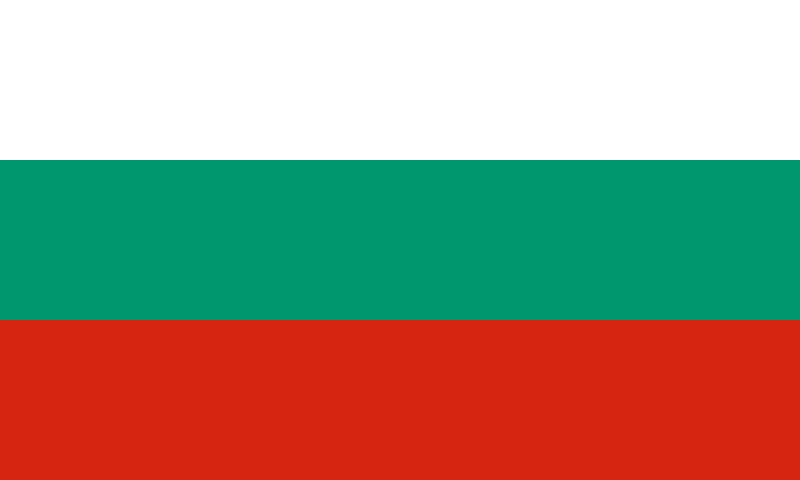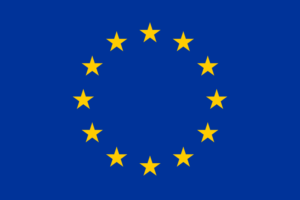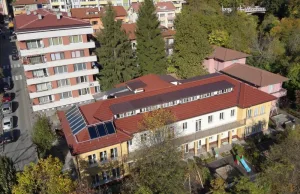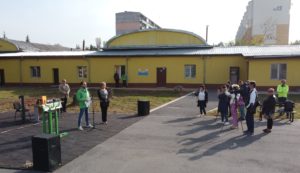Bulgaria: First Luxury Hotel in Sofia Heats Water with the Sun
November 4, 2013
Hilton Sofia has brought a large-scale solar thermal energy system into operation. The system, which consists of forty-five Bosch Solar 7000TF flat plate collectors on the roof of the building, heats 5,000 litres of the hotel‘s 8,000-litre demand per day. The big and modern hotel structure with 245 rooms, various restaurants and conference halls is located in the southern Sofia quarter of Losenets, at the bottom of the Vitosha Mountain, which peaks at 2,300 m. “We are directly in the corridor which brings fresh air from the mountains to the city, which is why we sometimes have quite heavy winds out here. So, we had to reinforce the aluminium pillars of the installation, in order to ensure the system’s safety even on windy days,” Valentin Vitkov explains. According to the Assistant Chief Engineer at Hilton Sofia, solar energy installations are rare in Bulgaria and municipal construction regulations are tough to comply with.
Of course, the sun doesn’t shine all the time even in otherwise sunny Sofia. To stay independent of rising fuel prices on gloomy days or at night, the management team of Hilton Sofia decided to combine its solar water heater with an electrically driven heat pump. “Sunlight, of course, costs nothing. But even the electricity for the heat pump is cheaper than the fuel we used before. With our solar thermal system and the heat pump in operation, we are not only saving a considerable amount of energy and carbon emissions, but quite some money as well,” Vitkov says, satisfied with the results of the project. The total investment costs of the solar thermal system and the peat pump were about EUR 120,000 and the yearly energy savings are estimated at 142 MWh. First, Hilton Sofia’s management expected the return of investment (ROI) to be at seven to eight years. Now, with fuel prices constantly reaching new heights, the ROI could already be achieved in five or six years.
According to Vitkov, energy efficiency became an issue for Hilton Sofia in 2009. The first measures, such as changing the light bulbs, were taken in 2010 and made it already possible to lower energy consumption in comparison to 2008. Then, Sofia-based Bosch Thermotechnika carried out an overall energy audit of the hotel and found solar thermal energy to be the most adequate solution for the hotel´s energy-saving policy. “Bosch designed the technical project and recommended its local partner Eratherm to carry out the installation,” Vitkov, who has worked almost ten years for Hilton Sofia, says.
“Of course, to the ordinary guest it makes no difference whether fossil fuel or the sun is heating the water for the shower in his or her room,” Stephan Reiter, General Manager at Hilton Sofia, says. But it has been a different story for some conference room clients: They consider the energy performance of a convention venue to be an increasingly important factor. “Some of the companies wishing to organise a meeting or a conference in our facilities are engaged in such deliberations. Sometimes, they ask us directly: ‘What would be our CO2 footprint if we brought so and so many guests from the USA, the UK or elsewhere to hold a conference in your hotel?’” Reiter believes that energy efficiency and sustainability is gaining traction as a selling point and thinks that the solar water heating system is meeting the demand of environmentally conscious clients. “But one thing must be clear: Of course, we want to save energy as much as we can, but we won´t compromise on the comfort standards the Hilton brand has been known for,” he says.
The general manager admits that the decision to completely retrofit the hotel energy system was not a decision taken by local management alone, but is a part of the global strategy of Hilton Worldwide. In 2009, the international hospitality chain with over 4,000 hotels in 90 countries, set ambitious sustainability aims, such as reducing energy consumption, carbon dioxide emissions and waste output by 20 % and water use by 10 % until the end of 2013. To make the strategy work, Hilton Worldwide has developed the so-called LightStay, a special system for measuring, analysing and reporting sustainability data. As the latest figures for 2,263 Hilton Worldwide properties using LightStay show, the chain has been able to reduce energy consumption by 12 % and CO2 emissions by 13 % compared to 2008, saving USD 253 million in energy costs.
More information:
Hilton Sofia: http://www.sofia.hilton.com
Bosch Thermotechnika: http://www.bosch-climate.bg
Eratherm: http://www.eraterm-erato.com
Hilton Worldwide: http://www.hiltonworldwide.com


